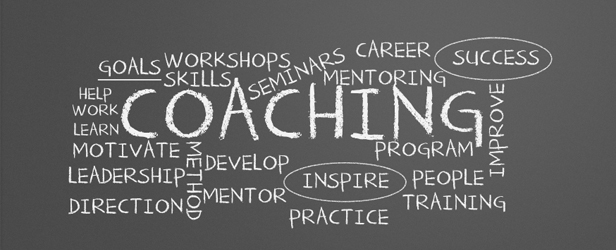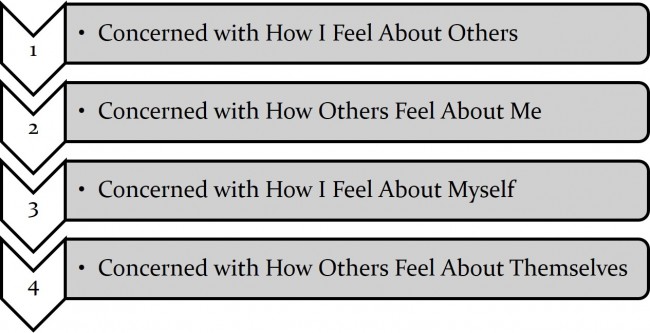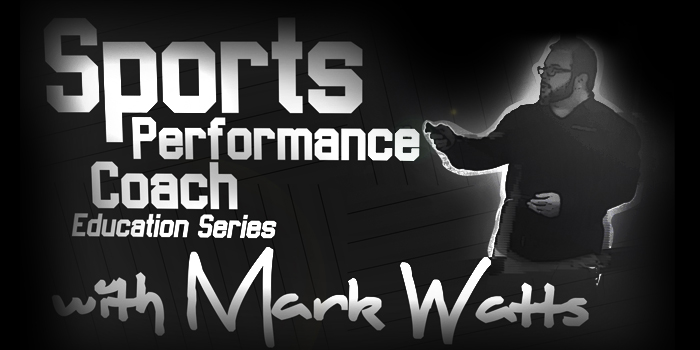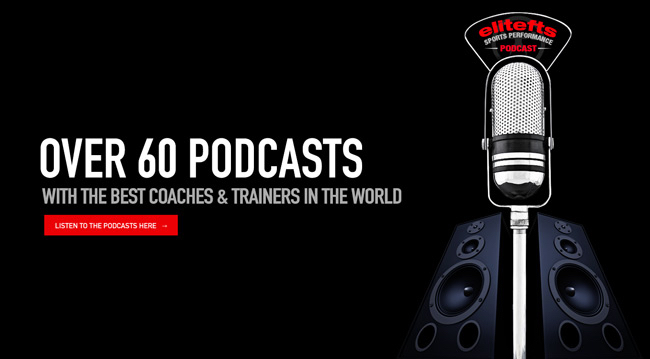
For the second year in a row, I was honored to present at the Robert Morris University Strength and Speed Clinic this past Sunday. Todd Hamer is a great friend, an even better coach, and I am humbled he has invited me to speak. The last two years, he has put one of his assistants in charge and both Ryan Nosak in 2014 and Joe Chowansky this year did outstanding jobs of putting these events together.
Here is a recap of last year's clinic and more info about this year's speaker line-up. Also, you can watch the entire clinic here.
My presentation was titled Training Considerations for Large Team Settings. It was basically a combination between five different presentations I have done via webinar for the elitefts Sports Performance Education Series.
- WATCH: The Four-Step Coaching Process
- WATCH: Pre-Workout Circuits to Optimize Training Time and Maximize Performance
- WATCH: 5 Strategies to Perform More Work in Less Time
- WATCH: How to Implement Auto-Regulatory Training in a Team Setting
- WATCH: Hypertrophy Circuits for Athletes in a Team Setting
One issue I was worried about was trying to fit all of those topics into one 50 minute presentation. I was making the cardinal sin of presentations by discussing a topic that was too broad. This often forces me to be more general than I'd like and leave out specific examples and details that would help the audience have a better grasp of the topic. I wrote about the mistakes I, and others, often make in the article 4 Ways Your Presentation will Have More Impact.
From Childhood to Adulthood: The 4 Stages
One of the last slides I included in this presentation didn't have much to do with the rest of the talk. It was an idea that I wanted to share with the other coaches and figured the audience and venue shared a commonality in that the attendees, and the mission of the clinic itself, was about becoming better coaches.
The idea of these 4 stages were solidified in my mind when I started teaching 5th grade this past year. One day, I will write an article on why I became a catholic school teacher at age 42, but for now, let's just say I am learning a lot and leave it at that.
Initially, these 4 stages represented childhood, early adolescence, middle to late adolescence, and adulthood. What I realized is that these stages encompass behaviors that may or may not be synonymous with age. The correlation between physical maturity and mental maturity may not exist in clear, definable terms. There are 50 year old men in stage one and the graduation from one stage to another is not concrete or permanent. Social media alone has thrown these stages into a series of loops rather than a linear progression.
The 4 Stages of Character Development
- I Am Only Concerned with How I Think of Others
- I Am Only Concerned with How Others Think of Me
- I Am Only Concerned with How I Think of Myself
- I Am Only Concerned with How Others Think of Themselves
These stages are often independent and vary greatly, depending on the specific platform or audience. The most important aspect of these stages are the intention of actions which determine the motivation behind them.
For the sake of this article, we will discuss how these stages directly reflect and are directly reflected in coaching in general.
Stage 1: I Am Only Concerned with How I Think of Others
Think of just about every child you come across before they reach puberty. This is also the stage that most grown men and women who have large egos and very little self-esteem revert to once they are in front of a computer. Specifically in the fitness industry, "coaches" and trainers have been taking advantage of the social media platform to express their inter-most feelings about how other people exercise. They have become self-appointed magistrates in the court of fitness and damnit... their opinions matter. Their moms, who they may still live with, tell them so.
Seriously, I may have added several years to my life (Lord knows my diet hasn't) when I stopped trying to remedy all of the injustices in the fitness industry. I realized that it is almost impossible to argue right and wrong when every situation is different. It's a matter of context, not content. It is unwise to criticize other coaches methods when there has yet to be (and never will be) a coach who has found the perfect training program for every athlete. Basing opinions on an entire training methodology off a snapshot of a program written on paper or one YouTube video is foolish. Instead of asking for tactful clarification we revert to professional crucifixion based on a lack of information.
As coaches, we must not follow in the footsteps of the self-employed fitness experts and use social media as self-promotion. There are thousands of bloated fingers pounding away on keyboards everyday begging for someone to read the products of their verbal rampage. "Why is no one changing an entire industry based on my rants?" It's probably a combination of noise and message. The first is too abundant and the second lacks substance.
"Our culture places a very high premium on self-expression, but is relatively disinterested in producing "selves" that are worth expressing." - Mathew Kelly
Stage 2: I Am Only Concerned with How Others Think of Me
Think of every teenager you know and there is a fairly good chance they fit in this category. It's not entirely their fault. This is the first generation of students that are the same generation as their parents in our society. Think about that. The lack of age discrepancy in parents (depending on the socio-economic status), the outside influences, and the social constraints; all participate in this teenage culture profile.
I always see adults starting sentences with...
- "These kids today...." or
- "This generation of young people..."
And then I start to think to myself, "what if I had social media when I was growing up?"
That vision scares the shit out of me. I am thankful I didn't. I am also thankful Social Media wasn't around during the beginning of my coaching career, either. When I started lifting weights in my basement in 1986, would I have been stronger if I would have had the internet? When I was trying to "figure things out in the iron game while in High School, The Marine Corps, and my first couple years in college, would I have been better off with Facebook rants and Instragram Memes as opposed to books by Fred Hatfield, Stuart McRobert, and Doc Kreis? Until Deepsquatter.com and then Elitefts; I had books and magazines. Thank God I didn't have a voice to tell everyone who read my (probably at that age) self-absorbed posts about how much I really didn't know but was too young and dumb to realize it. The lack of a platform forced me to read and listen to others. No one would have listened to me anyway. No matter how loud I typed.
One of the issues in strength and conditioning is that no one is advocating for the strength coach's job except for the strength coach. The very nature of the profession forces coaches to become self-promoters. As I've written in What is Really Wrong with Strength & Conditioning, there is one underlying issue that has driven down salaries and shattered job security around the country.
No one has figured out how to objectively evaluate the strength & conditioning coach.
Saturation combined with a lack of quantifiable measurement leads to coaches concerned with maintaining employment rather than improving performance. The worst coach in the world is the one who is afraid to get fired. This is because it changes who he or she is as a person by effecting how and why they make decisions. Without wins and losses, recruiting classes, rankings or stats; strength coaches are often forced to "campaign" for their relevance.
Respect among peers is vital for any coach, but some are forced to voice their opinion to establish a reputation. The problem with this whole system is internet banter to establish oneself as a respectable coach is that it is all based on theoretical knowledge. I often ask coaches, "Would your demeanor change in your message if we were talking over a beer with no audience as opposed to Twitter or Facebook?"
Stage 3: I Am Only Concerned with How I Think of Myself
A person's opinion of themselves is without a doubt the most important aspect of maturing to adulthood. There is no greater identifying factor of a human being than how he or she views themselves. Self-esteem, self-image, self-awareness, self actualization are all characteristics that coaches and mentors deem vitally important even beyond the "self" that they are concerned with.
What I sometimes do not understand is we seem to have created a society of individuals that feel the most optimum way of achieving and celebrating an increased sense of self-esteem to to make everyone else aware of it. If it really is...
- "you vs. you"or
- all about the "person in the mirror" or even
- "you are your only competition"
...then why do you need to share that information with everyone. Self-worth is much like respect and is gained through action. The difference is, unlike other character traits, self-esteem is not dependent on the opinions and perspective of others.
Not everyone would I agree, but I feel the most important quality that anyone that a coach mentors is self-efficacy. I first started to relate self-efficacy to coaching after hearing a podcast interview with Nick Winkleman. Self-efficacy, or competence, is the second stage in what Winkleman refers to as the Self-Determination Theory. I wrote in more detail about this in the article, Motivation and Motor Learning a while back.
To me, self-efficacy is defined the extent or strength of one's belief in one's own ability to complete tasks and reach goals. For coaches, this means helping the athletes gain three things in their time with you as their coach, the combination of which makes up their self-efficacy.
Self-Confidence - Belief in Yourself. This isn't about posting memes of motivational quotes or naming yourself s your #mcm or #wcw. This means you have been able to learn through success and failures while being wise enough to set realistic and attainable goals. I am a very confident person if I am coaching or presenting on a topic I am familiar with. Put me in front of a room to talk about about something out of my expertise and I don't care how confident I am, I will tank. When thorough preparation meets realistic expectations, confidence will soar.
Evaluated Experience - Life Lessons and Guidance from Quality Mentors. Whenever I hear a coach, trainer, or gym owner talk about how long they have been in the business, I am wary due to my own experience. Just because you have been coaching for a long time doesn't mean you are a good coach. Especially is you have been coaching without a mentor or own a gym with nothing more than clones of yourself "yessing" you to death. What if you have been doing a shitty job for all of those years? Without evaluated experience (like John Maxwell has suggested) from someone who actually understands what your job is about, you haven't really grown as a person. For a large part of my career, I was the head strength coach without a full-time assistant for all but a few years of my career. It took me way to long to realize that just because I was coaching, didn't mean I as really a coach.
Relevant Skills - Developing a skill set that actually improves others' performance. This goes back to understanding the role of a strength coach. Just because you are strong doesn't mean you have the ability to get others strong. They are not one in the same. I have said before, being strong feeds your ego, getting others strong feeds your family. Developing expertise that is relevant to your specific job requirements (or desired, future job requirements) is an essential endeavor.
In the simplest terms, self-efficacy is about gaining evaluated experience while enhancing skills in high-pressure, realistic scenarios.
Under pressure, you don't rise to the occasion, you sink to the level of your training. That's why we train so hard. - Anonymous Navy Seal.
Stage 4: I Am Only Concerned with How Others Think of Themselves
This is the final stage and admittedly not everyone is able to achieve this. I work on this every single day and feel that is is the one aspect of my life that I need to continue to strive for. I was such a selfish person for so long that thinking of others before myself has been a 180° turn-around for me in terms of character.
It was only when I started to put the needs of others before my own that I truly discovered the type of person I could become. Someone had said once that the only difference between you and yourself five years from now are the books you read and the people you meet. Well I was fortunate to have great mentors and smart enough to read as much as I could. Even if I haven't utilized all those lessons, it's been the pure exposure to those resources have been a blessing.
When people look back on my life I want them to be able to say that I had a positive impact on them. They were able to become the man or woman they are because of knowing me, not in spite of knowing me. In someway, being able to shape the lives of the people you're in contact with is one way your legacy can withstand the test of time. No one can live forever, but the way you treat people and the way you set an example for them on how to treat others is a way you can impact people you may never meet. That is empowerment.
It is my opinion that most coaches get into the profession for the absolute wrong reasons. Some coaches want to be strength and conditioning professionals because they love lifting weights. That may be the dumbest reason to get it in any profession. The job of a strength and conditioning coach in itself is selfless by nature. Nonetheless, the industry has been infested by individuals that do not share the value and intrinsic responsibility of the profession evident in their own attitudes and behaviors.
My friend Todd Whiteman had told me that there are some people that are good with kids and some people that are good for kids. There's a huge difference between those two statements. Anyone with a fraction of a personality can get along with their athletes. Although building a rapport and being able to connect with athletes of all ages and backgrounds is a prerequisite for becoming a great coach, it is not what being a coach is all about.
I will be the first to admit that athletes will not respect you if they don't like you. I also understand that that can't trust you until they know you. If they trust and respect you, then they will run through a wall for you. That all being said, this relationship building is essential but transactional. Coaching is more than getting the athletes to do what you want regardless of how you got to that point. As Joe Ehrman points out in Inside Out Coaching, there is a difference between transactional and transformational.
Here are four goals to set as a coach for stage 4 of this process. These are very cliche' and stolen, but meaningful (at least to me).
- Set goals for your athletes that they could never set for themselves. Then, give them the plan, the skills, and the confidence to reach them.
- Be the person you needed when you were their age. We all (especially coaches) have a tendency to become influences we never had growing up. Fill that void for someone else.
- Make them earn everything. Every time you give them something they don't deserve, you diminish them as a person. Don't steal the motivation and their decision on what is important to them.
- It's not about what they are getting from you, but who are they becoming because of you. Almost all (if not all) of the athletes you work with will not make a living playing sports. Make sure that the lessons you teach and the things they work hard to achieve will transcend throughout their lives.

Coaching and teaching are the two most important jobs in this country. No other profession allows mentors to hold young people accountable to others through their actions and behaviors. We need strong coaches that coach for the right reasons. You may not sell as many eBooks or get as many likes, but the impact you make will overshadow all external rewards.
Articles by Mark Watts
Olympic Lifting for Athletes: Using Static Holds to Improve Technique
Head Games: Training the Neck to Reduce Concussions
The Fastest Sport on Ice: Things You Don't Know About Bobsled
Tips to Crush the Combine Tests
An In-Season Training Guide for Baseball Pitchers
Individual Training in a Team Setting
Off-Season Training for Football (with 8-Week Program)
What is Really Wrong with Strength and Conditioning
The Last Sports Performance Podcast
Olympic Lifting for Athletic Performance
Sports Performance Coach Education Series
WATCH: How to Find a Strength and Conditioning Job
WATCH: Becoming a Mentor to Young Coaches
WATCH: The Four-Step Coaching Process
WATCH: 5 Strategies to Perform More Work in Less Time
WATCH: Why Communication is Key to a Better Coaching Career
WATCH: A Better Way to Train High School Athletes
WATCH: How to Implement Auto-Regulatory Training in a Team Setting
WATCH: Pre-Workout Circuits to Optimize Training Time and Maximize Performance
WATCH: Hypertrophy Circuits for Athletes in a Team Setting
Coaches Clinics
WATCH: Two Bench Press Mechanical Drop-Sets for Hypertrophy
WATCH: Two Lateral Speed Drills with Bands to Improve Change of Direction
WATCH: Adjusting the Glute-Ham Raise to Optimize Your Training
WATCH: Basic Linear Speed Acceleration Drills in a Team Setting
WATCH: Kettlebell Training for Team Sports
Mark Watts' Articles and Coaching Log
















1 Comment